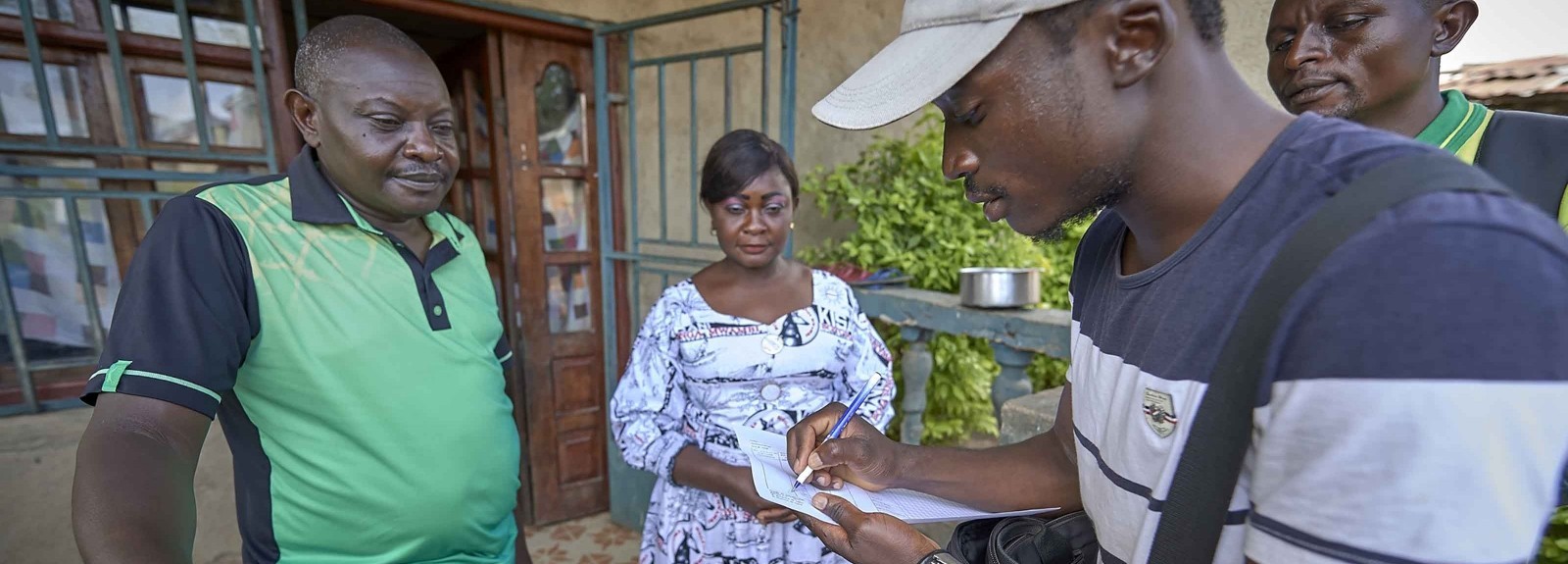Providence and Vernier Kahindo were afraid.
The couple knew Ebola had reached their community, located on the edge of Beni, Democratic Republic of Congo. So when they saw a pair of young people knocking on doors near their small home, wearing vests and clutching clipboards, they were worried about what the official-looking strangers might say.
It turns out the duo were community health workers on a door-to-door campaign to promote vaccination against Ebola and the sanitation practices that help stop the spread.
The Kahindo family learned from the pair that small changes to their behavior – like washing their hands frequently in a diluted bleach mixture – would keep their family healthy. They also learned the health clinic near their home was providing Ebola vaccinations this week to persons in their community.
“Our whole home has now been vaccinated,” Providence Kahindo said. “And the house-to-house visits helped us understand that the vaccination isn’t something to fear.”
Widespread fear and distrust of foreign organizations have been one barrier to containing Ebola. With funding from the Office of U.S. Foreign Disaster Assistance, IMA World Health has engaged its network of local, faith-based partners to trace cases of the disease and to sensitize communities to preventative practices, like vaccination and hygiene.
Eastern Congo’s insecure environment has made eradicating this, one of the deadliest Ebola outbreaks in recorded history, a difficult task. Using trusted local partners is one strategy to ensure Ebola prevention can continue despite insecurity and violence.
Contact tracing and sensitization teams from local partner, Programme de Promotion de Soins Santé Primaires, have been able to continue the fight against Ebola when security concerns arise. As for the threat of Ebola, the Kahindo household and others in the family’s neighborhood are safe thanks to this coordinated response.


